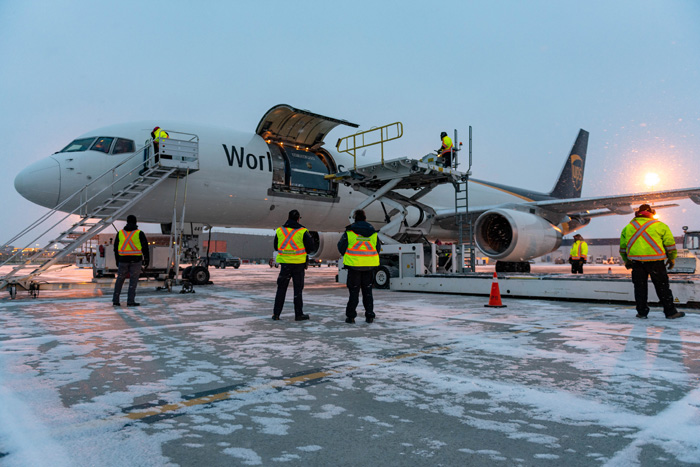On Tuesday morning a cargo plane arrived at the Richardson International Airport in Winnipeg. That in and of itself is not unusual as Winnipeg is a major transportation hub. But its cargo was must unusual. On board was the first evidence of a global effort to develop a vaccine for the COVID-19 pandemic. The Pfizer vaccine, enough to vaccinate 900 people, was delivered to Winnipeg with vaccinations beginning on Wednesday.
Of course, 900 vaccinations are not going to end the pandemic, but it marks a clear path toward helping people return to what they want most, normality. The demand was so high for access to the first 900 doses that the internal number within Health to apply for the vaccination received well over 100,000 calls. The number was only internal because the Manitoba Vaccination Committee has determined that these first doses should be administered to critical and vulnerable healthcare workers who are working most directly on the COVID-19 fight with patients.
These first vaccinations will happen at the University of Manitoba’s Rady Faculty of Health Sciences as specialized equipment and handling is required for the Pfizer vaccine. However, following these, a ‘super-site’ for vaccinations, storage, administration, and logistics will be established at the RBC Convention Centre in Winnipeg. The Pfizer vaccine requires ultra-low temperature freezers and installation happened at the RBC site this week which is expected to be operational by January.
As more and more vaccine is made available to Manitoba by the federal government, there will be a requirement for additional vaccination sites. Already there are plans to establish sites across Manitoba including in Steinbach. As more and more vaccine become available, the province will shift to a more conventional immunization program.
On Tuesday of this week the federal government announced that Canada would be receiving another shipment of Pfizer vaccine next week and potentially a COVID-19 vaccine created by Moderna as early as the end of December following approval by Health Canada which has the final say on whether a vaccine is approved for distribution in Canada.
Back in March when most of the world was becoming aware of this coronavirus, there was a great deal of legitimate concern about the ability to produce a vaccine in a timely way or at all. The collective effort of governments and companies around the world has brought us to this place of hope. But the vaccination program, especially in its early days, will be much slower that most Canadians will want. Which means that this will be a very difficult winter yet, perhaps the darkest part of the pandemic. This is reflected in the cost of isolation, in the cost of 2,750 surgeries being cancelled in November because of the COVID-19 surge in Manitoba, by the economic cost and, of course, by the now more than 500 Manitobans who have passed away from the virus. We must still continue to be vigilant against the virus.
But even during these challenges, the start of the vaccination program in Manitoba this week brings hope and a clear path back to the sense of normal that each of us want.




